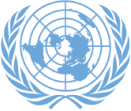Statement by H.E. Rudolph Michael Ten-Pow, Permanent Representative of Guyana to the United Nations at the General Debate of the Special Political and Decolonization Committee (Fourth Committee) on all Decolonization Issues (Agenda items 58-62) - calling for the acceleration of efforts to eradicate the last vestiges of colonialism from our world and highlighting Guyana's call on the parties to the dispute over the Western Sahara to cooperate fully with the Secretary-General, his Personal Envoy and with each other to facilitate the achievement of a just, lasting and mutually acceptable political settlement that would provide for the self-determination of the people of Western Sahara in keeping with the resolutions of the General Assembly and the Security Council.
Thank you, Mr. Chairman.
This is the first time that Guyana is taking the floor in the Fourth Committee for this 72nd session of the Assembly, so allow me to extend to you my warmest congratulations on your election as Chairman of the Committee. I am confident that under your leadership the work of the Committee will be brought to a successful conclusion. I also congratulate the other members of the Bureau on their election. My delegation pledges its full support to you as we collectively work towards completing the Committee’s full agenda for this session.
Mr. Chairman,
Despite the progress that has been achieved by the United Nations with more than 80 countries now exercising their right to self-determination, the process of decolonization remains incomplete. The 17 Non-Self-Governing Territories still under colonial rule are 17 too many. A number of these are in my own region of the Caribbean and as a former colony itself, Guyana understands well the passionate yearning for freedom that dependent peoples have – a yearning that is rooted in an innate desire to fashion their own destiny and chart their own course in exercise of their right to self-determination. That right to self-determination is a core principle of the United Nations and must therefore be respected and upheld for all peoples everywhere. And it is up to us, the members of the United Nations, to act collectively to ensure that the peoples of Non-Self-Governing Territories are able in time to freely exercise this right.
Recall Mr. Chairman that in our Declaration on the Granting of Independence to Colonial Countries and Peoples Member States recognized that “colonialism impedes the social, cultural and economic development of dependent peoples and militates against the United Nations ideal of universal peace.” Indeed, over the past several days we have listened to petitioners from many of the Non-Self-Governing Territories sharing the experience of colonialism that they have endured and expressing their earnest desire to become masters of their own destiny. Human beings everywhere are equal and the human rights and freedoms that we recognize as fundamental, including the right to development, must be accorded to all equally without distinction. To deny these rights and freedoms to some peoples of the world runs counter to this ideal and is incompatible with the vision of the world set forth in the Charter and with our obligations under the Declaration on the Granting of Independence to Colonial Countries and Peoples and the Universal Declaration of Human Rights. There is no place for colonialism in our world today, a world governed by international law and the obligations that flow therefrom.
Mr. Chairman,
My delegation supports the measures approved by the General Assembly for the Second and Third International Decades for the Eradication of Colonialism. We are now in the latter years of the Third International Decade and we therefore urge the Administering Powers of Non-Self-Governing Territories to fully cooperate with the United Nations in finalizing a constructive programme of work for the implementation of the relevant resolutions on decolonization, including those relating to specific Non-Self-Governing Territories. My delegation hopes to see measurable progress in this regard by the end of the Third Decade and I wish, in this connection, to underscore the importance of continued dialogue between the Administering Powers, which have the obligation to promote to the utmost the well-being of the inhabitants of these territories, a number of which are Small Island Developing States that have particular vulnerabilities, including being vulnerable to the impact of climate change; the Special Committee, which is the primary vehicle for fostering the decolonization process; and the colonized peoples of the Territories themselves.
Mr. Chairman,
On the question of Western Sahara, my delegation welcomes the recent appointment of Mr. Horst Köhler, former President of Germany, as the Secretary-General’s Personal Envoy for Western Sahara. We encourage all Parties to cooperate fully with the Secretary-General, his Personal Envoy and with each other to facilitate the achievement of a just, lasting and mutually acceptable political settlement that would provide for the self-determination of the people of Western Sahara in keeping with the resolutions of the General Assembly and the Security Council. We further emphasize that the well-being of the Sahrawi people should be foremost in the minds of all stakeholders and we call on the Parties to demonstrate the necessary political will to achieve a just and durable solution to this longstanding issue.
In conclusion, Mr. Chairman, let me reiterate my Government’s unwavering support for the principle of self-determination of peoples and for the acceleration of efforts to eradicate the last vestiges of colonialism from our world.
I thank you.


